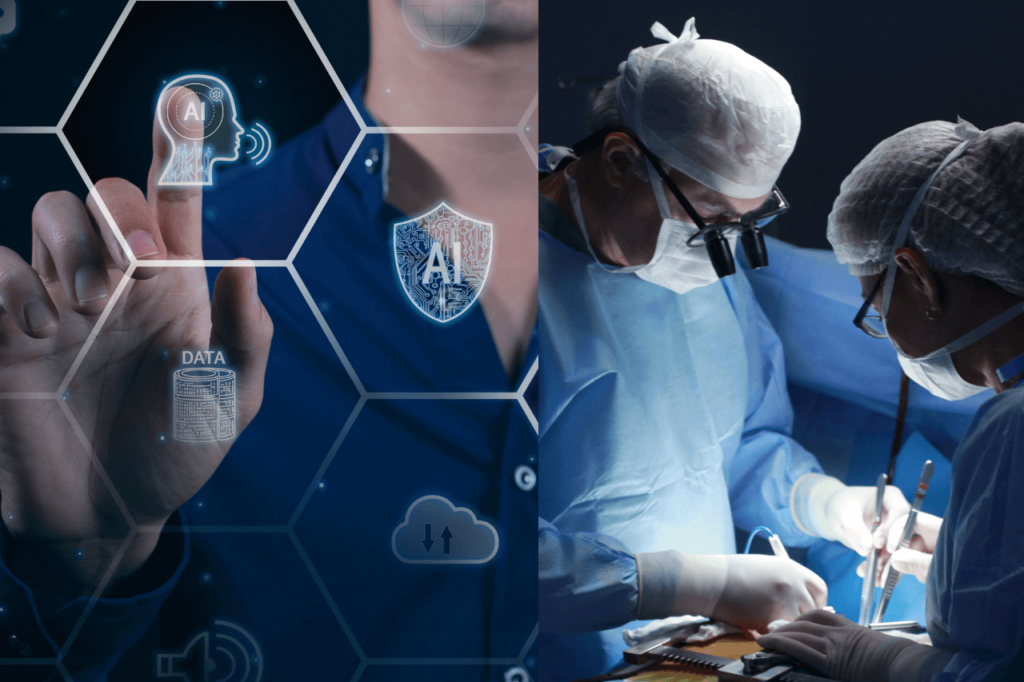AI is Revolution in Medical Field
Artificial Intelligence (AI) is transforming healthcare, particularly in the analysis and interpretation of Electrocardiograms (ECGs). Here’s how AI is making a significant impact in hospitals:
Improved Accuracy in Diagnosis
AI algorithms, trained on vast datasets of ECG readings, can recognize patterns indicating heart conditions with high accuracy. These algorithms can identify abnormalities such as arrhythmias, ischemia, and other cardiac issues, often detecting subtle changes that might be missed by human eyes, leading to more precise diagnoses.
Rapid Analysis and Timely Intervention
AI systems can analyze ECG data much faster than humans, providing immediate feedback to healthcare providers. This rapid analysis is crucial in emergencies where timely diagnosis and intervention can save lives. For instance, AI can quickly identify signs of a heart attack, allowing for faster treatment.
Continuous Monitoring and Predictive Analytics
AI-powered devices continuously monitor patients’ ECGs, offering real-time analysis and alerts. This continuous monitoring is particularly beneficial for patients with chronic heart conditions. Predictive analytics can forecast potential cardiac events by analyzing trends and patterns in ECG data over time, enabling preventive measures before a critical event occurs.
Personalized Treatment Plans
By analyzing ECG data along with other patient-specific information, AI can help develop personalized treatment plans. This approach ensures patients receive treatments tailored to their unique cardiac profiles, improving the effectiveness of interventions and reducing the risk of adverse effects.
Reducing Workload for Healthcare Providers
AI assists in automating the initial screening and analysis of ECGs, significantly reducing the workload for cardiologists and other healthcare providers. This allows medical professionals to focus more on patient care and complex cases that require human expertise.
Educational Tool for Medical Professionals
AI can also serve as an educational tool for medical professionals. By providing detailed analysis and explanations of ECG readings, AI systems can help doctors and medical students better understand cardiac conditions and improve their diagnostic skills.
Integration with Other Medical Systems
AI systems for ECG analysis can be integrated with other hospital information systems, such as electronic health records (EHRs). This integration ensures that ECG data is seamlessly incorporated into a patient’s overall medical history, facilitating comprehensive care and better communication among healthcare providers.
Examples of AI in ECG Analysis
AliveCor KardiaMobile: A portable device that uses AI to analyze ECGs taken with a smartphone, providing instant feedback on heart health.
Eko AI: This AI-powered stethoscope can analyze heart sounds and ECGs to detect murmurs and other abnormalities.
Google’s DeepMind: Utilizes deep learning algorithms to analyze ECG data and predict heart disease with high accuracy.
AI in Cardiology and its Future
AI is transforming the field of cardiology by enhancing the accuracy, speed, and efficiency of ECG analysis. These advancements are leading to better patient outcomes, more personalized care, and reduced burdens on healthcare systems. As AI technology continues to evolve, its role in ECG analysis and overall cardiac care is expected to expand, bringing even more innovative solutions to hospitals and clinics worldwide.
Disclaimer: The information provided is for informational purposes only and should not be construed as medical advice. Healthcare decisions should be made in consultation with qualified professionals. Mentioned AI applications are illustrative, and their efficacy may vary. Further research may be needed for widespread adoption.



